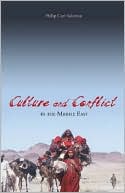Category Books
- Fiction Books & Literature
- Graphic Novels
- Horror
- Mystery & Crime
- Poetry
- Romance Books
- Science Fiction & Fantasy
- Thrillers
- Westerns
- Ages 0-2
- Ages 3-5
- Ages 6-8
- Ages 9-12
- Teens
- Children's Books
- African Americans
- Antiques & Collectibles
- Art, Architecture & Photography
- Bibles & Bible Studies
- Biography
- Business Books
- Christianity
- Computer Books & Technology Books
- Cookbooks, Food & Wine
- Crafts & Hobbies Books
- Education & Teaching
- Engineering
- Entertainment
- Foreign Languages
- Game Books
- Gay & Lesbian
- Health Books, Diet & Fitness Books
- History
- Home & Garden
- Humor Books
- Judaism & Judaica
- Law
- Medical Books
- New Age & Spirituality
- Nonfiction
- Parenting & Family
- Pets
- Philosophy
- Political Books & Current Events Books
- Psychology & Psychotherapy
- Reference
- Religion Books
- Science & Nature
- Self Improvement
- Sex & Relationships
- Social Sciences
- Sports & Adventure
- Study Guides & Test Prep
- Travel
- True Crime
- Weddings
- Women's Studies
Culture and Conflict in the Middle East » (New Edition)

Authors: Philip Carl Salzman
ISBN-13: 9781591025870, ISBN-10: 1591025877
Format: Hardcover
Publisher: Prometheus Books
Date Published: March 2008
Edition: New Edition
Author Biography: Philip Carl Salzman
Philip Carl Salzman (Montreal, Canada) is professor of anthropology at McGill University; the founding chair of the Commission on Nomadic Peoples of the International Union of Anthropological and Ethnological Sciences; the founding editor of Nomadic Peoples; and the author of Black Tents of Baluchistan; Pastoralism: Equality, Hierarchy, and the State; Thinking Anthropologically; and Understanding Culture.
Book Synopsis
In an era of increasing interaction between the United States and the countries of the Middle East, it has become ever more important for Americans to understand the social forces that shape Middle Eastern cultures. Based on years of his own field research and the ethnographic reports of other scholars, anthropologist Philip Carl Salzman presents an incisive analysis of Middle Eastern culture that goes a long way toward explaining the gulf between Western and Middle Eastern cultural perspectives.
Salzman focuses on two basic principles of tribal organization that have become central principles of Middle Eastern life-balanced opposition (each group of whatever size and scope is opposed by a group of equal size and scope) and affiliation solidarity (always support those closer against those more distant). On the positive side, these pervasive structural principles support a decentralized social and political system based upon individual independence, autonomy, liberty, equality, and responsibility. But on the negative side, Salzman notes a pattern of contingent partisan loyalties, which results in an inbred orientation favoring particularism: an attitude of my tribe against the other tribe, my ethnic group against the different ethnic group, my religious community against another religious community. For each affiliation, there is always an enemy.
Salzman argues that the particularism of Middle Eastern culture precludes universalism, rule of law, and constitutionalism, which all involve the measuring of actions against general criteria, irrespective of the affiliation of the particular actors. The result of this relentless partisan framework of thought has been the apparentlyunending conflict, both internal and external, that characterizes the modern Middle East.
Table of Contents
Making a Living in the Middle East: Life in the Valleys, Deserts, and Mountains 21
Friends and Enemies: Security and Defense in the Middle East 49
Defense and Offense: Honor and Rank in the Middle East 101
Turning toward the World: Tribal Organization and Predatory Expansion 131
Tribe and State: The Dynamics of Incompatibility 175
Root Causes: The Middle East Today and Tomorrow 197
References 213
Index 221
Subjects
 Middle Eastern History
Middle Eastern History  Middle Eastern History - Modern - General & Miscellaneous
Middle Eastern History - Modern - General & MiscellaneousHistory
 Political History
Political History  Diplomacy & International Relations
Diplomacy & International RelationsHistory
 Political History
Political History  Middle Eastern Politics
Middle Eastern PoliticsHistory
 World History
World History  Civilization - History
Civilization - HistoryNonfiction
 Social Sciences
Social Sciences  Anthropology & Archaeology
Anthropology & ArchaeologyNonfiction
 All Nonfiction
All Nonfiction  Anthropology & Archaeology
Anthropology & ArchaeologyNonfiction
 All Nonfiction
All Nonfiction  Diplomacy & International Relations
Diplomacy & International RelationsPolitical Books & Current Events Books
 International Relations
International Relations  Military Policy
Military PolicyPolitical Books & Current Events Books
 Middle East
Middle East  Middle Eastern Politics - General & Miscellaneous
Middle Eastern Politics - General & MiscellaneousPolitical Books & Current Events Books
 All Politics
All Politics  Diplomacy & International Relations
Diplomacy & International RelationsPolitical Books & Current Events Books
 All Politics
All Politics  Middle Eastern Politics
Middle Eastern PoliticsScience & Nature
 Social Sciences
Social Sciences  Anthropology & Archaeology
Anthropology & ArchaeologySocial Sciences
 Anthropology & Archaeology
Anthropology & Archaeology  Socio - Cultural Anthropology
Socio - Cultural AnthropologyNonfiction
 History
History  Middle Eastern History
Middle Eastern HistoryNonfiction
 History
History  Political History
Political HistoryNonfiction
 History
History  World History
World HistoryNonfiction
 Politics & Current Affairs
Politics & Current Affairs  International Relations
International RelationsNonfiction
 Politics & Current Affairs
Politics & Current Affairs  Middle East
Middle EastNonfiction
 Politics & Current Affairs
Politics & Current Affairs  All Politics
All Politics
